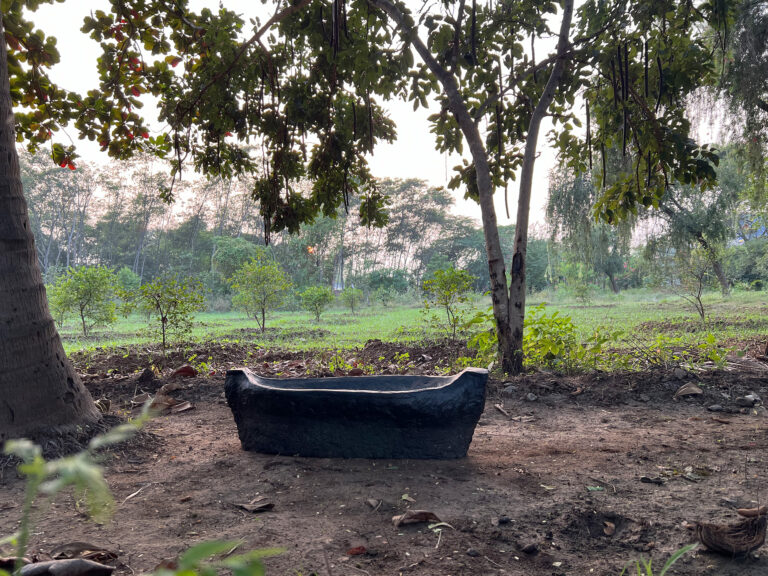Wolfgang Laib
that which is beyond the beyond, that to which all things return
31 OCT until 17 JAN 2026
Opening – 31 OCT 2025, 6-8 pm
The Buchmann Galerie is pleased to announce Wolfgang Laib’s exhibition that which is beyond the beyond, that to which all things return at the gallery. The exhibition presents Laib’s latest body of work. Sculpted from black Indian granite, sculptures in the form of elongated slabs carry the graceful presence of ships, their forms suggesting both weight and movement, permanence and voyage. This series has developed organically in recent years and adds a significant new facet to the artist’s oeuvre. The works are being presented publicly for the first time.

Wolfgang Laib’s Studio in South India;
Indian granite,
40 (h) x 38 x 130 cm / 15¾ (h) x 15 x 51¼ in
Courtedy of the artist and Buchmann Galerie
Widely known for his use of natural materials such as beeswax, pollen, rice, and milk, Laib’s practice is rooted in a deep engagement with nature, spirituality, and the meditative processes of art-making. His work harmoniously blends Western minimalist traditions with Eastern philosophies, reflecting an awareness of the sacred in the everyday.
The new sculptures, with their massive, yet serene presence, continue Laib’s exploration of simplicity and stillness. These works balance a minimalist aesthetic with spiritual depth, drawing the viewer into a state of reflection. Through the use of stone, Laib engages with the themes of permanence and impermanence, inviting contemplation on the interconnection between nature, time, and human existence.
In this latest body of work, Laib explores themes of travel, transformation, and the passage of life. Carved from solid blocks of granite in southern India, where the artist spends part of his time, the sculptures embody both permanence and movement, their refined forms recalling vessels poised for an unseen journey. Monumental yet restrained, these shapes reveal the natural strength and quiet beauty of the stone. Together, the works invite contemplation on time and migration, and on the subtle tension between the ephemeral and the eternal.
